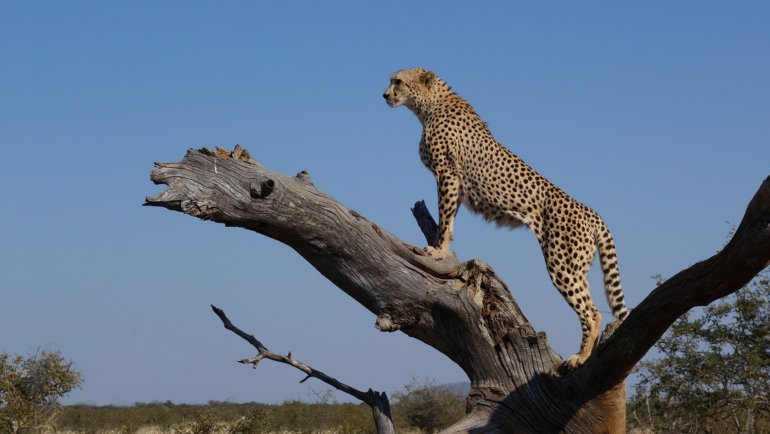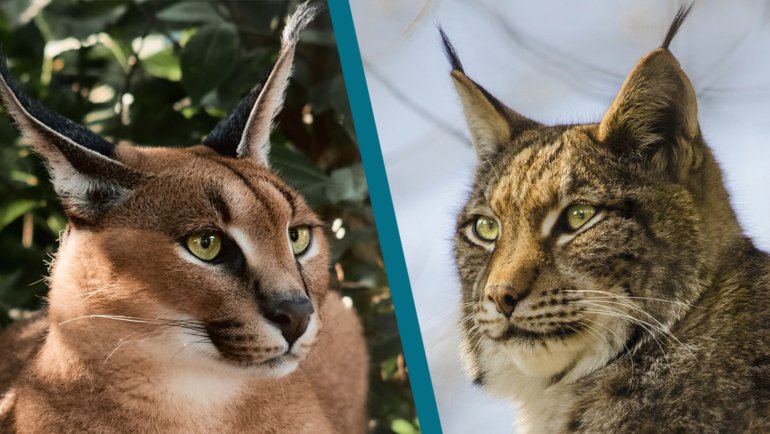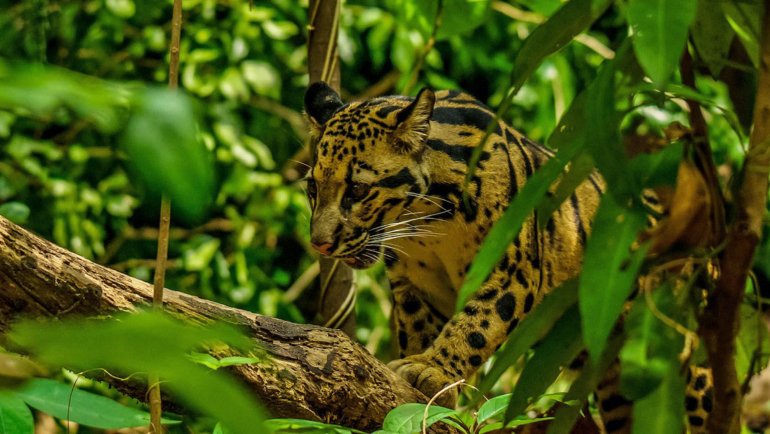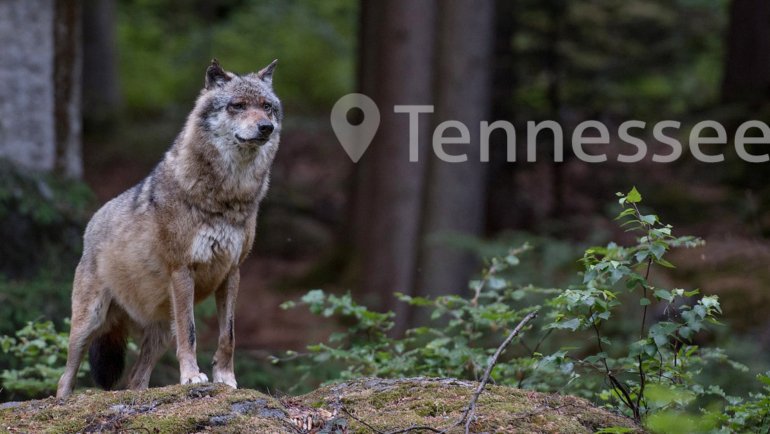The African Wild Dog, scientifically known as Lycaon pictus and often referred to as the Painted Dog, stands out as one of Africa’s most fascinating predators. Characterized by its unique patchwork coat, large rounded ears, and graceful agility, this canine has captured the curiosity and admiration of many.
However, as their numbers dwindle in the wild, a pressing question emerges: Can these unique creatures be brought into our homes as companions? This consideration ties into the broader trend of exotic pet ownership, a phenomenon that often walks the line between human fascination and the ethical responsibilities we hold toward wild animals.
What Do We Call Domestication, Exactly?
The tale of domestication is as old as civilization itself. Dogs, our most beloved pets, were once wild wolves—a species that underwent thousands of years of evolution alongside humans. This transformation from wild predator to loyal companion wasn’t just a matter of taming a few wild wolves.
It was a long and complex process, influenced by factors such as genetic disposition, environmental conditions, and human intervention. Over generations, those wolves that displayed lesser aggression and more social affinities towards humans were selectively bred, giving rise to the wide array of dog breeds we know today.
Domestication goes beyond mere taming. Tamed animals might learn to coexist with humans but remain fundamentally wild in their behavior and genetics. Domestication, on the other hand, involves genetic changes over generations, where an animal species adapts to live beneficially with humans.
Not all animals are suitable for this process, and it’s largely determined by factors like the animal’s reproductive rate, disposition, social structure, and ability to adapt to a human-centric environment.
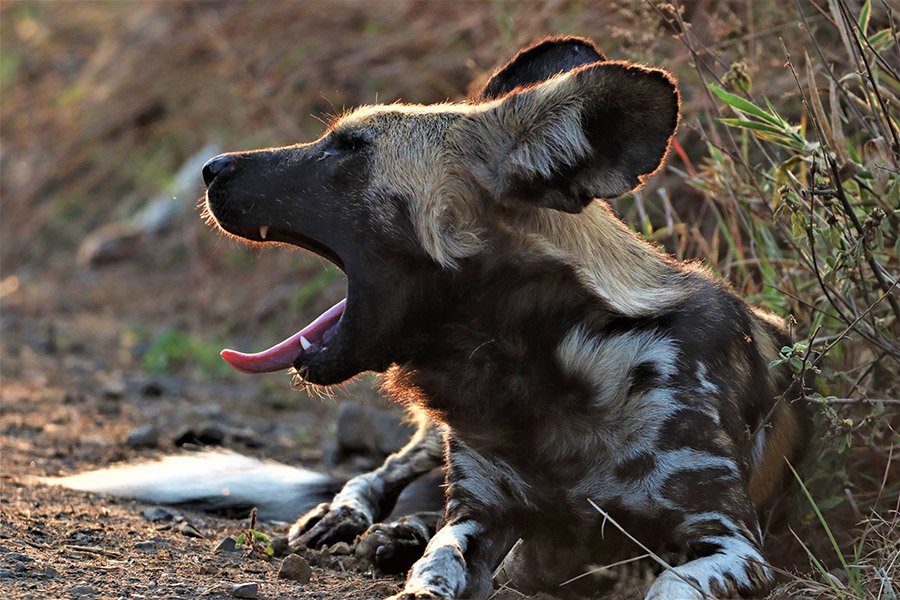
The Nature of the African Wild Dog: Can It Be Domesticated?
The African Wild Dog thrives in the vast landscapes of Africa, governed by instincts fine-tuned over millennia. They live within intricate social structures, with each member of the pack playing a vital role.
Their world is one of cooperation and strategy, chasing down prey with remarkable stamina and marking vast territories to fend off rivals. But can such a creature, with its deep-rooted wild behaviors, be molded into a domestic pet?
Historically, successful domestication has required animals to possess certain traits conducive to living alongside humans. The animals we’ve domesticated, like dogs and cattle, showed a predisposition to be guided by human influence, both genetically and behaviorally.
The process of domestication involves not just taming, but selective breeding over generations to enhance desired traits and reduce aggressive or unpredictable behaviors. When examining the case of the African Wild Dog, it becomes obvious that no, it can’t be domesticated. Their territorial instincts, vital for survival in the wild, would be problematic in domestic settings.
Their cooperative hunting techniques, a blend of intelligence and stamina, are not merely behaviors—they are essential aspects of their identity. Trying to suppress or alter these instincts to fit the confines of a home environment could result in stress and unpredictable reactions.
Thus, understanding the African Wild Dog’s nature is not just about appreciating their behaviors. It poses a question fundamental to the ethics and feasibility of domestication: Is it justifiable, or even possible, to reshape such a profoundly wild spirit for human companionship?
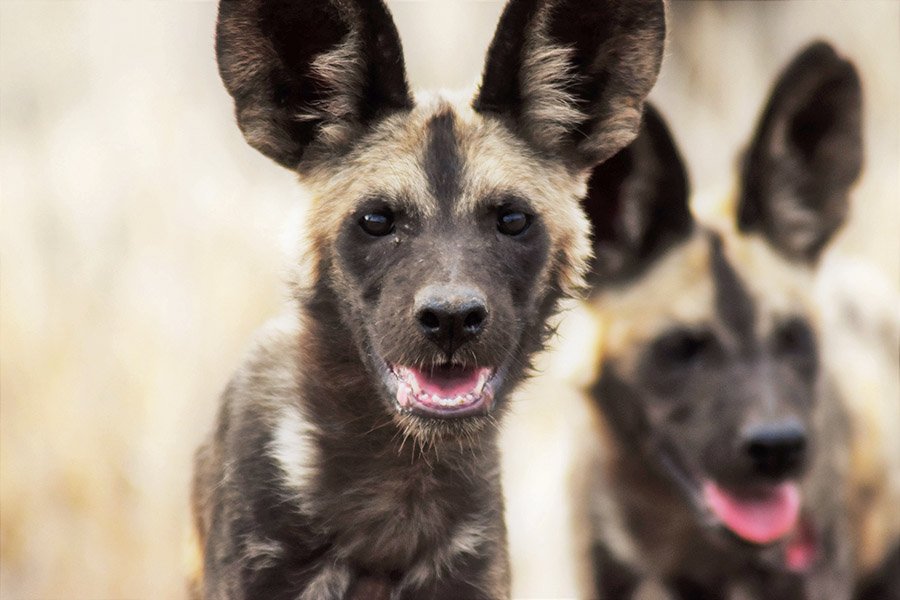
Can African Wild Dogs Be Kept As Pets? Here Are The Challenges
African Wild Dogs cannot be kept as pets. Attempting to domesticate an African Wild Dog is not a mere matter of taming it. True domestication requires generations of selective breeding and a consistent environment. Even then, the wild instincts of the animal may persist. Here are some primary challenges one would face:
- Genetic Differences Between Wild and Domesticated Animals: Through thousands of years, domesticated animals have undergone genetic changes that make them more docile, manageable, and suited to life alongside humans. The African Wild Dog, in its pure form, has not undergone these changes. Their genes are wired for survival in the wild, not for a life inside a home or even a fenced yard.
- Potential Behavioral Challenges: Even if raised in captivity, wild dogs may exhibit behaviors that can be challenging for owners, such as aggression or unpredictability. Their pack mentality might make them more inclined to challenge humans for dominance, especially if they perceive inconsistency in leadership.
- Space and Habitat Requirements: African Wild Dogs are used to roaming vast territories, often covering tens of kilometers in a single day when hunting. A regular household, or even a spacious backyard, is a far cry from their natural habitat. Restricting them to confined spaces might lead to frustration, depression, and resultant behavioral issues.
- Dietary Needs and Challenges: In the wild, these dogs have a varied diet mainly consisting of fresh meat from their hunts. Replicating this diet in captivity can be challenging and expensive. Feeding them commercial dog food might not meet all their nutritional needs.
- Health Concerns and Vet Care: Being an exotic species, not all veterinarians may be equipped or knowledgeable enough to provide the necessary care for African Wild Dogs. There’s also the risk of them contracting, or spreading, diseases when in close proximity to domestic animals.
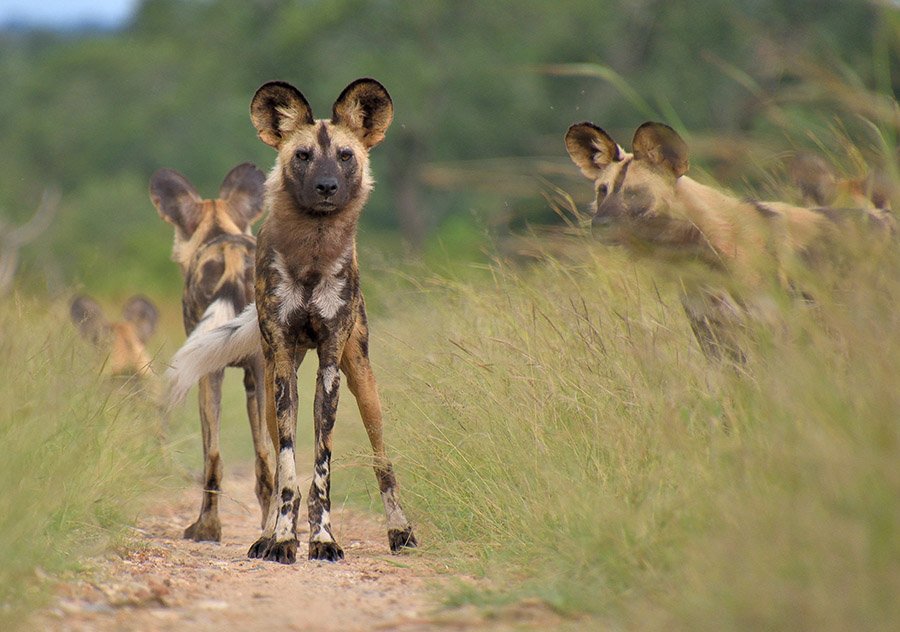
Legal and Ethical Considerations
Ownership of such a magnificent wild creature comes with its fair share of moral and legal challenges:
- Laws Surrounding Ownership of Exotic and Endangered Species: Fortunately, in many countries and regions, owning an African Wild Dog as a pet is illegal due to its endangered status. These laws are in place to protect both the species and potential owners from the inherent risks.
- Ethical Considerations: Taking an animal out of its natural habitat and confining it to a domestic setting raises ethical questions. Is it right to deprive a creature of its freedom for human satisfaction or curiosity?
- Implications on Conservation Efforts: Every African Wild Dog taken out of the wild or bred in captivity for the pet trade means one less individual contributing to the survival and genetic diversity of the species in its natural habitat. Instead of aiding their conservation, owning them as pets might inadvertently contribute to their decline.
Can African Wild Dogs Be Tamed?
While ‘domestication’ refers to genetic changes over generations, ‘taming’ is about conditioning individual wild animals to lessen their fear of humans.
- Individual Cases vs. General Behavior: Some African Wild Dogs might appear less aggressive toward specific humans, especially if raised by them, but this isn’t indicative of the entire species. A tamed wild dog remains a wild creature at heart.
- Taming Risks: These dogs can display unpredictable behavior due to their hunting instincts and pack dynamics, posing potential risks to humans and other animals.
- Temporary Nature of Taming: Behaviors might change with age, leading to increased wild instincts or aggression.
- Ethical Concerns: Raising a wild animal away from its natural setting can cause stress and behavioral issues, while potentially endangering the species.
Overall, taming African Wild Dogs comes with significant challenges and ethical dilemmas. Their well-being is typically best in their natural environment.
Frequently Asked Questions
Can African Wild Dogs be trained like domestic dogs?
While they might learn basic commands, their wild instincts are strong, making them unpredictable and challenging to train in the same manner as domestic dogs.
Are there any cases of successfully domesticated African Wild Dogs?
There might be instances where African Wild Dogs are tamed to a certain degree, especially if raised from a young age, but “tamed” does not equate to “domesticated.”
Could African Wild Dogs crossbreed with domestic dogs?
While they share a common ancestry, the genetic differences that have evolved over time make crossbreeding between the two species highly unlikely.
How long do African Wild Dogs live in captivity vs. the wild?
In the wild, they typically live up to 10 years, but in captivity, with proper care, they might live slightly longer. However, lifespan isn’t the only measure of a fulfilling life; quality of life matters greatly.
Is it illegal to own an African Wild Dog as a pet?
In most countries, yes, due to their endangered status and potential risks.
Learn More About African Wild Dogs
- African Wild Dog: Characteristics, Diet, Facts & More [Fact Sheet]
- African Wild Dog Habitat: Where Do Painted Dogs Live?
- Why Are African Wild Dogs Endangered? All About The Threats They Face
- African Wild Dog vs. Hyena: Their Key Differences & Who Would Win a Fight?
- 32 Really Cool Facts About African Wild Dogs
- What Do African Wild Dogs Eat? An Exploration of Their Diet
- African Wild Dog Bite Force: Into the Jaws of The Painted Dog
- African Wild Dog Predators: Their Top 5 Natural Enemies
- Are African Wild Dogs Dangerous? Do They Attack Humans?
- The Secrets Behind The African Wild Dog’s Hunting Success Rate
- African Wild Dog vs. Wolf: A Comparison & Who Wins in a Fight?
